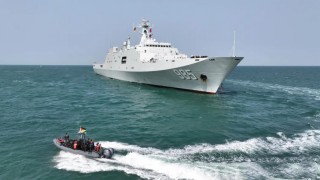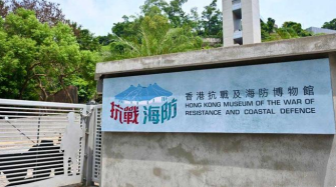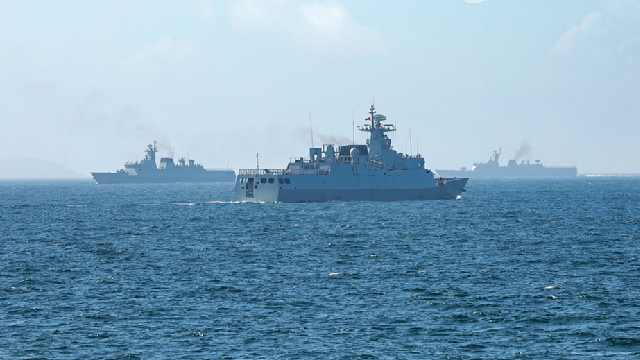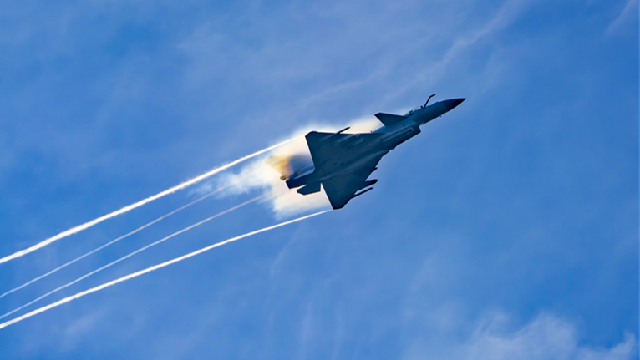By Xiang Haoyu
Recently, several European countries have taken turns sending vessels and aircraft to carry out joint training with the Japan Maritime Self Defense Force (JMSDF), and Japanese Prime Minister Fumio Kishida will attend the NATO Summit this month for the third consecutive year. Clearly, Japan, agitated by the US, is colluding with NATO even more deeply and actively trying to expand the organization's clout to the Asia Pacific, which will bring profound negative impacts on the region's strategic security.
Upgraded security cooperation
Japan became one of NATO's nine global partners as early as 2008. In 2013, the two sides signed their first joint political declaration, vowing to collaborate in such areas as anti-piracy, disaster relief, and anti-terrorism. The next year, they issued the Individual Partnership and Cooperation Programme (IPCP), which listed nine priority areas for cooperation, including cyber defense, maritime security, arms control, non-proliferation and disarmament, and defense science and technology. Cooperation projects were launched afterwards based on this document.
Since the Ukraine crisis broke out, Japan has taken the opportunity to strengthen its strategic bond with the Western bloc through ever more frequent interactions with NATO. After Japanese Prime Minister Fumio Kishida attended the NATO Summit for the first time in June 2022, he was present at the meeting again last July, at which the Individually Tailored Partnership Programme (ITPP) between NATO and Japan for 2023-2026 was signed. The document listed 16 areas of cooperation including cyber defense and space security guarantee, and made clear that the JMSDF will deeply engage in NATO's exercises and joint actions, marking a leap forward in their security cooperation.
Alignment between the two sides' strategic ambitions
The closer interactions between Japan and NATO are driven by their respective strategic ambitions. NATO wishes to reach out to the Asia Pacific while Japan dreams of becoming a major country. NATO, which is in great tension with Russia, urgently needs external forces to form a stronger front against Moscow. To serve its strategic needs for "global transformation", it even attempts to set up its first Asia-Pacific liaison office in Tokyo in hopes of engaging deeper in the Indo-Pacific affairs with Japan as a springboard.
Japan, on the other hand, sees the Ukraine crisis as a rare opportunity to break free from the restrictions imposed by the post-WWII order and expand its clout as a "major country" worldwide. Taking advantage of the Ukraine crisis, Japan's right-wing conservative forces are strongly hyping external threats and calling for revising the pacifist constitution and strengthening military buildup. Japanese politicians have also come up with the fallacy that "Ukraine today maybe East Asia tomorrow", advocating that "security in Europe and the Indo-Pacific region is inseparable". Leveraging its coordinated actions with NATO on the Ukraine issue, the Japanese government has kept breaking restrictions on its export of weapons and equipment. The further relaxation of the Three Principles on Transfer of Defense Equipment and Technology announced by the Kishida administration last December opened the gate for exporting advanced destructive weapons and equipment.
Overspill effects not to be underestimated
Although there are objective factors that keep Japan from becoming an official NATO member in the short term, it is strengthening its cooperation with NATO in both traditional and non-traditional security domains against the background of the US intensifying its alliance system and pushing the so-called "major-country competition". The two sides are trying to form a new type of security relationship different from the traditional military alliance, whose overspill effects must not be underestimated.
For one thing, NATO's outreach to the Asia Pacific will aggravate international polarization. After the end of the Cold War, NATO has to justify its existence by constantly stirring up disputes and creating security risks. Likewise, its current outreach efforts towards the Asia Pacific, with the US being the master hand behind and Japan as an accomplice, must be backed up by hyping "external threats" and concocting such narratives as "democracy vs. authoritarianism" and other bloc confrontation theories. Such a trend is sure to intensify the turmoil and fragmentation of the international community.
For another, introducing NATO to the Asia Pacific will worsen regional security situation and hinder its integration. The US and Japan's introduction of NATO to the Asia Pacific and instigation of geopolitical conflicts have heated up the tension on the Korean Peninsula, at the Taiwan Strait, and in the South China Sea, casting the pall of a "new Cold War" over East Asia. Medium-sized and small countries in the region, represented by ASEAN members, are forced to pick sides in the whirlwind of major-country competition. Lately, the US and Japan are actively roping in out-of-region forces to meddle in the South China Sea issue, even egging on the Philippines to make provocations, seriously threatening regional peace and stability.
Moreover, the deepening collusion with NATO may activate Japan's destructive potential. Historically, Japan's foreign strategies have always been fraught with adventurism and opportunism, showing an obvious tendency to go to extremes. At present, right-wing conservative forces are dominating Japan's political circle, and a populist trend for military expansion and war-preparedness is on the rise. Given that Japan has never truly and deeply reflected on its history of aggressions, its development today is getting increasingly dangerous as the pacifist constitution is being all but shelved and its step towards a military power is picking up speed. This calls for high alert in the international community.
(The author is from China Institute of International Studies.)









